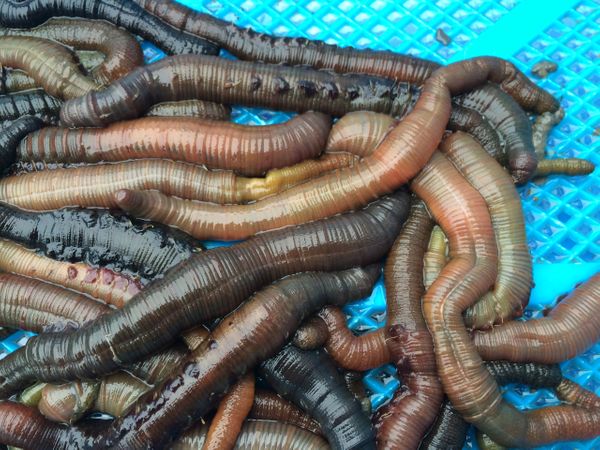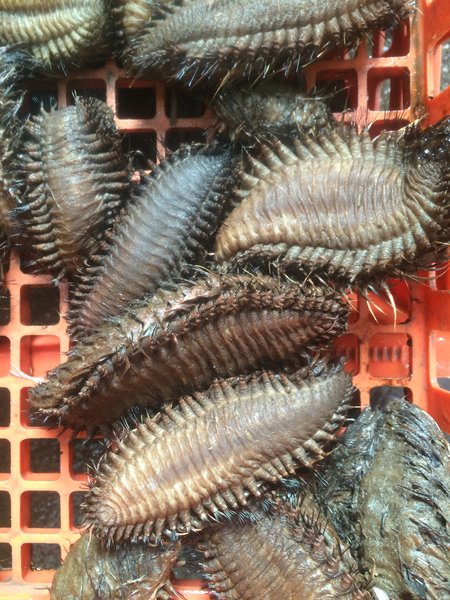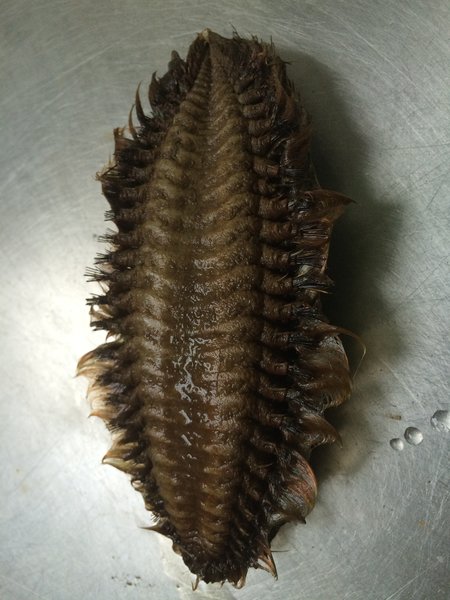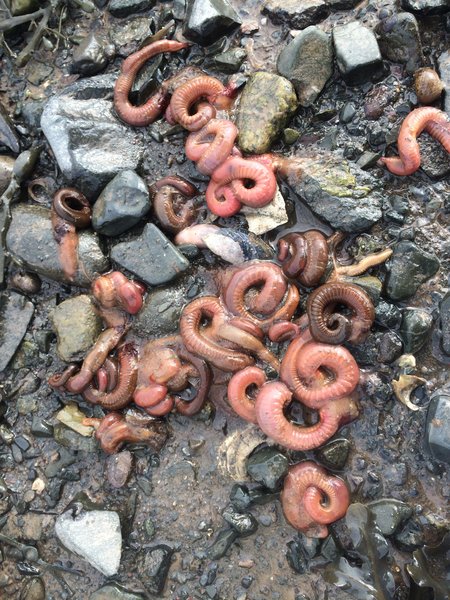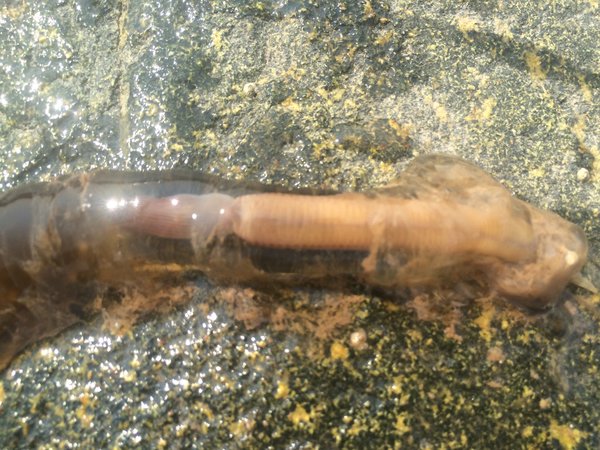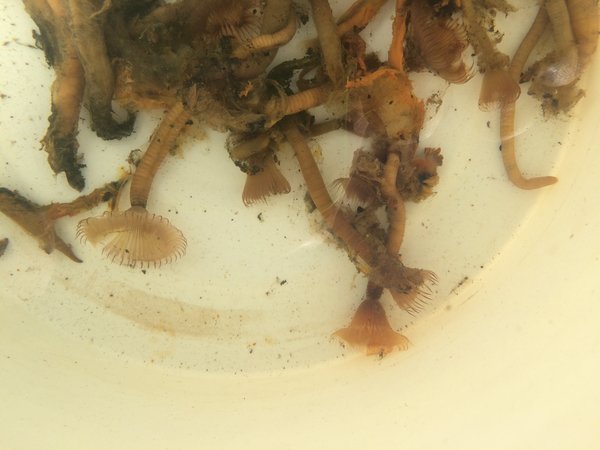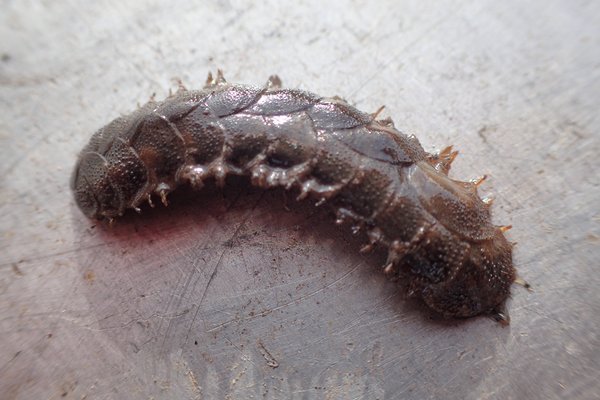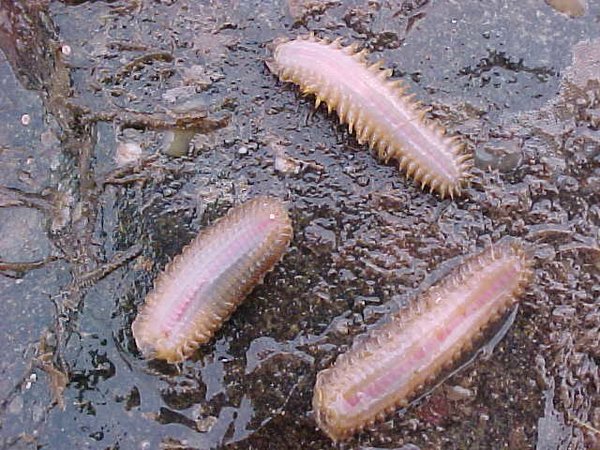Lugworm (Arenicola), Live, Bait

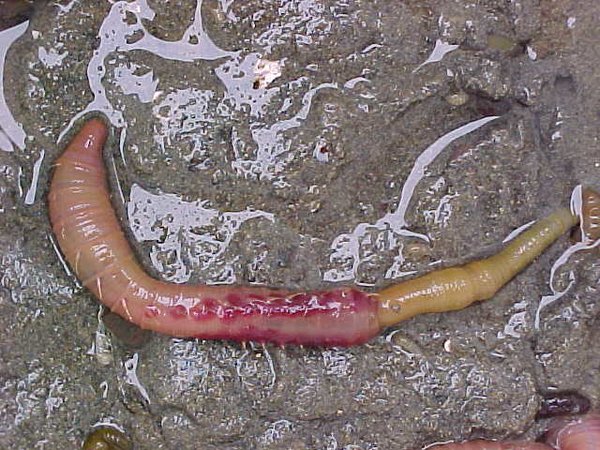

Lugworm (Arenicola), Live, Bait
Common name: lugworm
Scientific name: Arenicola cristata
Locations: mid-low tide in sandy mud flats
Seasonality: available all year
Colors: range in color from dark black/brown to light tan
Size: 3” - 6”
Collected: by hand, digging fork
Quantity: sold by the each
Tidepool Tim says, "Lugworms are a challenging worm to find and to dig up! For years my success rate was about 30%...I'd dig and dig and dig and maybe get a dozen worms for a few hours work. Finally, by half luck and half experience, I realized how to approach them. Lugworms live in a tube-shaped burrow and so there are two ends to their mud-encased homes.
At the tail end, there is a distinctive pile of their poop (castings). The Sheehan kids and I call this the 'volcano' - it literally looks like a small volcano. At the other end (this was the challenge to recognize) is the 'swimming pool'. At this end, there is actually a small puddle of water. I think that the lugworm somehow creates this depression in the mud. In this way, when the tide recedes, the anterior end of the worm still has a bit of seawater in this puddle from which to extract oxygen maybe?
So long story short; once I realized that the worm could be found in a straight line between the volcano and the swimming pool - the rest was history! Viola! Now I can dig lugworms with at least a 95% success rate. Occasionally I still find no worm or worse - cut one in half with my digger. Either way, it's much improved.
Anatomically lugworms have a neat anterior end with exterior gills, bristly setae (to hold them in their burrows) and a sacrificial posterior end. On this end of the worm, I noticed that the segments are able to quickly fracture and leave a chunk of worm writhing in the sand. To me this appears to be a distracting motion - perhaps to allow seagulls or crabs to grab the end of the worm and not sacrifice the worm itself - pretty cool really! Lugworms are the largest worm we offer - sometimes they are thicker than my thumb - pretty impressive.”


